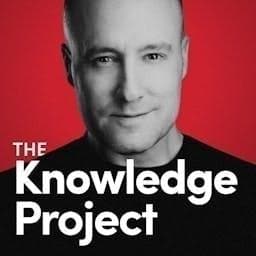Most org design conversations get forced through a narrow funnel: prove the ROI, justify the spend, make the numbers work. But if work is something most people can’t opt out of—and where we spend a huge chunk of our attention and waking lives—then “it pays off” feels like a painfully small standard.
This week, Rodney and Sam explore the ethical case for organizational design. They move beyond spreadsheets and profit metrics to ask bigger questions about leadership, power, transparency, compensation, and the human impact of broken systems. What do organizations owe the people who work inside them? Is better workplace design a moral responsibility — not just a financial strategy?
--------------------------------
Ready to change your organization? Let's talk.
Get our newsletter: Sign up here.
LinkedIn
Instagram--------------------------------
r/antiwork
Mihaly Csikzentmihalyi and Flow
Target CEO comp package (note: New CEO’s comp package is roughly $16m, vs over $70m for the prior CEO in 2020)
triple bottom line
John Rawls and A Theory of Justice00:00 Check-In: What’s your energy like right now?
04:04 Divorcing doing what’s “good work” from ROI
08:16 A “good” experience is the exception rather than the rule
10:06 Protecting yourself isn’t “selling out”
15:41 Spending our attention on worthy things
21:35 Leadership vs. worker power disparity is broken
27:31 Ethically designed companies never are publicly traded
31:07 Principles and values of ethical orgs
40:35 Joy at work shouldn’t be nickled and dimed
44:35 Idea 1: Don’t accept performative change initiatives
47:17 Idea 2: Audit your existing principles and values
48:35 Idea 3: Don’t let leadership gaslight you into conforming
50:33 Wrap up: Leave us a review and share the show with a friend
Sound engineering and design by Taylor Marvin of Coupe Studios.




































